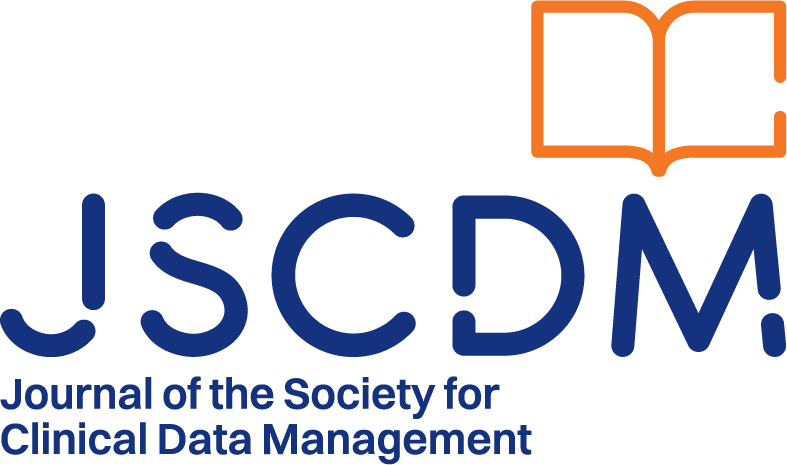Instituitional Theory and Instituitional Change
Although the terms “organization” and “institution” may be used interchangeably in general conversation, their primary purpose should be distinguished in order to discuss them in the social science context. While there are diverse schools and definitions of institutional theories, the term “organization” can be understood as a group of people who have the same objective; for example, family, community, company, and a medical site are forms of “organizations.” On the other hand, “institutions” are social constructs composed of cultural-cognitive, normative, and regulative elements that, together with associated activities and resources, provide stability and meaning to social life.1 Institution in this context does not refer to “site”, whereas, it is generally understood to mean formal and informal conventions, norms, and rules that guide action or collective action. Institution can be also described or implied as tangible or intangible forms such as corporate culture, social behavior, attitude, rules, and guidelines. Various levels of institutions exist including global/international level, national level, community level, company level, etc., and some institutions are nested within organizations or institutions. In the context of pharmaceutical development, for example, the ICH guidelines are the major descriptive institutions of the conduct of clinical research on a global level. Furthermore, these guidelines are implemented as regulations in individual countries. The practices of clinical research are also shaped by a variety of regional and national level types of institutions, including those that are informal and tacit, such as regulatory requirements, medial system, company strategy and culture, and so on.
Institutional change is the occurrence of change in an institution that can be explained through several factors23 (Table 1). For example, regulatory implementation of new ICH guidelines as step 5, can be understood as “designed”, “intentional”, “endogenous”, “slow”, or “top down” institutional change on the national or regional level. As a historical example, the development of institutional practices such as conflict of interest disclosure, clinical trial registry, and data sharing were developed to conduct transparent clinical trials. It was the response to past misconducts, publication bias, and selective reporting that can be identified as “endogenous causes”, “top-down”, and “slow” institutional changes. One case in Japan, The Clinical Trials Act4 established in 2017, enforces strict administrative procedures and was developed as a reaction to revelations of misconduct in 2013 relating to a cardiovascular drug trial that was pharmaceutically funded and investigator-initiated.5 The transformation of clinical data collection that occurred during the 2000s from a paper-based case report form (CRF) to an electronic CRF using electronic data capture (EDC) system can be also perceived as institutional change that has characteristics of an “exogenous” with technological progress, “bottom-up”, and “slow” dissemination to stakeholders over the years.
Key factors of institutional changes.
| Factors | Possible Manifestation |
|---|---|
| Design | Spontaneous – Designed |
| Intention | Unintentional – Intentional |
| Cause | Exogenous – Endogenous |
| Speed | Rapid – Slow |
| Direction | Top down – Bottom up |
Instituitional Changes in Clinical Trials in the Era of COVID-19 Pandemic
Several institutional changes have been observed based on the current impact and potential influence of COVID-19. Holding the IRB in face-to-face meetings, delivery of investigational products (IP), site visits by patients for interventions and assessments, site visits by clinical research associates (CRAs) for source data review, etc. were restricted to prevent the spread of severe acute respiratory syndrome coronavirus 2 (SARS-CoV-2) in most countries of the world, depending on the seriousness of the epidemic in each country.6 The reaction to these restrictions led or is currently shifting to changes in conducting clinical trials from conventional methods to new methods that incorporate remote operations using recent innovative technologies. Overall, the change could be characterized by rapid institutional change towards remote and decentralized clinical trials. Regulatory authorities, such as founding regulatory members of ICH, rapidly responded by disseminating administrative documents as correspondence relating to the COVID-19 pandemic. Indeed, several regulatory announcements such as those from FDA,7 EMA,8 and PMDA910 were spontaneously published that allow alternative methods of conducting the procedures of clinical trials. Table 2 shows type of regulatory documents and the time from WHO’s pandemic declaration. All three regulatory agencies published the documents within the same month of the pandemic declaration.11 In addition, the COVID-19 taskforce of the Society for Clinical Data Management (SCDM), acting as the international professional organization for clinical data management, rapidly responded by collecting regulatory documents and organized webinars on the overview of changes in regulatory guidelines. The first webinar was held on April 30, 2020.12
Reaction to WHO declaration of pandemic from Regulatory Authorities.
| Regulatory Authority | Type of documents | Date of publication | Time from WHO pandemic Declaration (2020.3.11) |
|---|---|---|---|
| PMDA | Letter from Chief Executive | 31 March 2020 | 19 days. |
| FDA | Guidance for Industry, Investigators, and Institutional Review Boards | March 2020 | Same month |
| EMA | Guidance to sponsors | 25 March 2020 | 13 days |
PMDA: Pharmaceuticals and Medical Devices Agency, FDA: Food and Drug Administration, EMA: European Medicines Agency.
The remote and decentralized ways of conducting clinical trials such as “virtual trials” or “decentralized trials” are expected to raise the efficiency of the clinical trials, save operational costs, and encourage broader populations in those with geographical restrictions or non-targeted populations in conventional trials. For example, while the safety of trial participants is paramount, remote assessment of patients through the use of phone or video contacts, mobile sensor devices, and electronic patient-reported outcome (ePRO) systems will become more popular.13 In terms of decentralization, alternative locations of assessments of participants or administration of IP, alternative delivery of IP, and patient home visits by nurses will be conducted instead of visiting trial sites by participants.14 From the perspective of sponsors, for the oversight of clinical sites, central and remote monitoring by direct capturing of source data, and analyzing EDC data with statistical methods will become the core approach instead of visiting sites by CRA for source data verification.15
The implementation of “decentralized clinical trials” accelerated in reaction to these restrictions. Unexpectedly, the coronavirus disease (COVID-19) became the driving force and window of opportunity for these rapid institutional changes (Table 3). The institutional changes in conducting clinical trials, new approaches, and alternative measures to conventional methods, can be considered to be “endogenous” as they originated through technological innovation, and “design-based” in terms of existing guidelines and risk-based approaches to monitoring or eSource (such as ICH E6-R2,16 eSource guidelines from FDA17 during the 2010s). Since 2020, the coronavirus disease (COVID-19) has been a window of opportunity, allowing institutional change to rapidly accelerate in the implementation and dissemination phase as a reaction to “exogenous causes,” specifically, the maintaining of social distance. Once our community experiences the feasibility and efficacy of these alternative measures during the coronavirus disease (COVID-19), certain approaches will remain an affordable option and will gradually become the new standard or, in other words, the “new normal.” New institutions will persist in the post-pandemic era if they are nested in CDM community, unless new institutions create new problems or further innovations occur in technologies or methodologies in clinical trial. As observed, institutional changes were rapid and top-down and to adapt these changes, clinical data managers need to gain the knowledge and experience especially in implementing eSource data collection and remote monitoring of these data collection.
Characteristics of Institutional Changes of Implementation of remote operations by Covid19 Pandemic.
| Factors | Direction of Manifestation | Example in Covid19 Pandemic |
|---|---|---|
| Design | Designed | Technology and methodology for remote operation (DCT, Telemedicine) was available for implementation |
| Intention | Unintentional | Triggered by Covid 19 Pandemic as an unexpected event |
| Cause | Endogenous | Originated through technological and methodological innovation |
| Exogenous | Dramatical change in social life style | |
| Speed | Rapid | Rapid implementation since Covid 19 Pandemic |
| Direction | Top down | Declaration of a state of emergency from the government Rapid Release of Announcements from Regulatory Agency |
Acknowledgements
We would like to thank Editage (www.editage.jp) for English language editing.
Competing Interests
The authors have no competing interests to declare.
References
1. Scott WR. “Institutional theory.” in Encyclopedia of Social Theory. Ritzer G (ed.), Thousand Oaks. 2004: 408–14. CA: Sage.
2. Scott WR. Institutions and organizations. 4th ed. Thousand Oaks, California: SAGE Publications, Inc; 2014.
3. Coccia M. An introduction to the theories of institutional change. J Econ Library. 2018; 5(4): 337–344.
4. Ministry of Health, Labour and Welfare. Clinical Trials Act (Act No. 16 of April 14, 2017). Accessed May 7, 2020. https://www.mhlw.go.jp/file/06-Seisakujouhou-10800000-Iseikyoku/0000213334.pdf
5. Nagai Y. History and Future Direction of Academia Clinical Trial Regulation:Lessons of Diovan Affairs and Concerns on Clinical Trials Act. Jpn J Pharmacoepidemiol. 24(2) July 2019; 93. DOI: http://doi.org/10.3820/jjpe.24.87
6. Society for Clinical Data Management. COVID-19 & Risk-areas and potential impact to clinical data. Accessed April 17, 2020. https://scdm.org/covid19-and-clinical-data/
7. US Food and Drug Administration. FDA Guidance on Conduct of Clinical Trials of Medical Products duringCOVID-19 Public Health Emergency. Accessed March 19, 2020. https://www.fda.gov/media/136238/download
8. European Medicines Agency. Points to consider on implications of Coronavirus disease (COVID-19) on methodological aspects of ongoing clinical trials. Accessed May 13, 2020. https://www.ema.europa.eu/en/documents/scientific-guideline/points-consider-implications-coronavirus-disease-covid-19-methodological-aspects-ongoing-clinical_en.pdf
9. Pharmaceuticals and Medical Devices Agency. PMDA pledge to tackle COVID-19 Pandemic. https://www.pmda.go.jp/english/int-activities/0001.pdf. Accessed April 21, 2020.
10. Pharmaceuticals and Medical Devices Agency. Q&A regarding clinical trials under the influence of COVID-19 (in Japanese). Accessed April 21, 2020. https://www.pmda.go.jp/files/000234815.pdf
11. World Health Organization. WHO Director-General’s opening remarks at the media briefing on COVID-19 – 11 March 2020. https://www.who.int/director-general/speeches/detail/who-director-general-s-opening-remarks-at-the-media-briefing-on-covid-19---11-march-2020. Accessed April 20, 2021.
12. Society for Clinical Data Management. Overview of Changes in Regulatory Guidelines in Response to COVID-19 – COVID-19 Webinar Series. https://www.youtube.com/watch?v=SACMFuurfcU&list=PLwZ-GDR0KW5ebZub7k6eU0II-3bmKOHPy&index=5 Accessed April 20, 2021.
13. Kennedy F, Shearsmith L, Ayres M, Lindner OC, Marston L, Pass A, Danson S, Velikova G. Online monitoring of patient self-reported adverse events in early phase clinical trials: Views from patients, clinicians, and trial staff. Clin Trials. 2021 Apr; 18(2): 168–179.
14. Society for Clinical Data Management. The Evolution of Clinical Data Management to Clinical Data Science (Part 2: The technology enablers) A Reflection Paper on how technology will enable the evolution of Clinical Data Management to Clinical Data Science. https://scdm.org/wp-content/uploads/2020/03/SCDM-Reflection-Paper-Evolution-to-Clinical-to-Data-Science-Part-2.pdf Accessed May 14, 2021.
15. European Medicines Agency. Qualification opinion on eSource Direct Data Capture (DDC). https://www.ema.europa.eu/en/documents/regulatory-procedural-guideline/qualification-opinion-esource-direct-data-capture-ddc_en.pdf. Accessed November 5, 2021.
16. International Council for Harmonisation of Technical Requirements for Pharmaceuticals for Human use (ICH). Integrated Addendum to ICH E6(R1): Guideline for Good Clinical Practice E6(R2). https://www.pmda.go.jp/files/000231047.pdf Accessed May 14, 2021.
17. US Food and Drug Administration. Guidance for Industry Electronic Source Data in Clinical Investigations. https://www.fda.gov/regulatory-information/search-fda-guidance-documents/electronic-source-data-clinical-investigations Accessed May 14, 2021.

